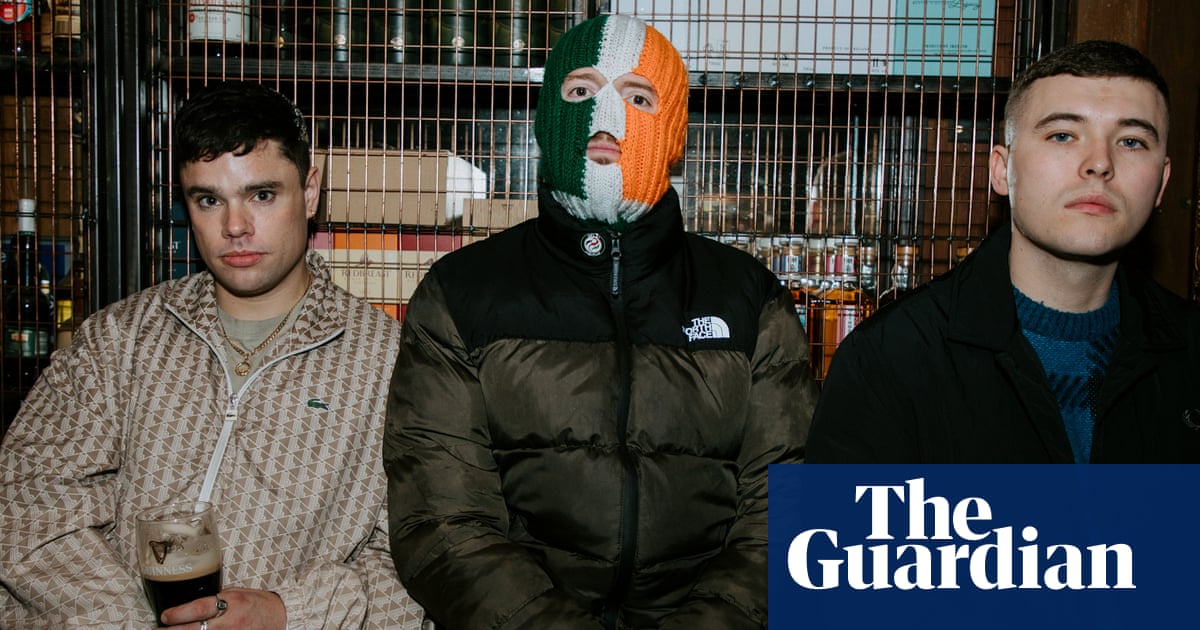Sharon Osbourne Calls for Revocation of kneecap’s U.S. Work Visas After Coachella Protest
The Irish-language rap group faces backlash for their pro-Palestinian statements during a music festival performance.
los Angeles—Sharon Osbourne, television personality and former judge on “America’s Got Talent,” is urging U.S. authorities to revoke the work visas of Kneecap, an Irish-language rap group, following their performance at the Coachella Valley music and Arts Festival. The group’s set included denunciations of Israeli military actions in Gaza, drawing sharp criticism and sparking a wider debate about freedom of speech and artistic expression in the united States.
Osbourne took to social media to voice her concerns. “I urge you to join me in advocating for the revocation of Kneecap’s work visa,” she stated on X, formerly Twitter, on Tuesday. She accused the band of engaging in “hate speech” and “supporting terrorist organizations,” arguing that they should not be permitted to perform in the U.S.
Conservative Media Outcry
osbourne’s call to action follows condemnation from conservative media outlets. Commentators on Fox News went as far as comparing the band’s statements to sentiments expressed in “Nazi Germany.” One commentator suggested Kneecap should be removed from “authority positions” and that the “values of education” should be re-instilled, adding fuel to the controversy.
Kneecap Responds to Criticism
Kneecap has responded to the criticism with defiance. The group posted a clip of the Fox News segment, commenting that the commentator’s admission that she had not previously heard of the band was the “only part of this shite that made any sense.” They also shared supportive messages from fans, claiming to have received thousands of endorsements alongside “hundreds of violent Zionist threats.”
Despite the controversy, Kneecap reported that almost all the concerts on their scheduled U.S. tour for October are sold out.The tour is expected to proceed as planned, pending any action from U.S. immigration authorities.
The Coachella performance
During their performance at Coachella, the trio—Móglaí Bap and Mo Chara from Belfast, and DJ Próvaí from Derry—used their platform to address the Israeli-Palestinian conflict.Mo Chara stated, “The Palestinians have nowhere to go,” after saying Britain had persecuted Irish people but not bombed them from the skies.
The group led the audience in chants of “free, free Palestine” and displayed pro-Palestinian messages on video screens. One message asserted, “Israel is committing genocide against the Palestinian people,” while another claimed, “It is being enabled by the US government who arm and fund Israel despite their war crimes,” and used an expletive against Israel.
Osbourne responded to the performance by saying the festival had “compromised its moral and spiritual integrity” by allowing Kneecap and Green Day to denounce Israel over the 18-month war.
She further elaborated on her stance,stating,”Music’s primary purpose is to unite people. It should not be a venue for promoting terrorist organisations or spreading hate,” singling out Kneecap’s “aggressive” political statements. She added, “This band openly support terrorist organisations. This behavior raises concerns about the appropriateness of their participation in such a festival and further shows they are booked to play in the USA.”
Broader Context: Freedom of Speech vs. Hate Speech
The controversy surrounding Kneecap raises complex questions about the boundaries of free speech, especially in the context of artistic expression. In the U.S.,the First Amendment protects freedom of speech,but this protection is not absolute. The Supreme Court has established exceptions for speech that incites violence, defamation, or constitutes a true threat.
The debate over Kneecap’s statements hinges on whether their pro-Palestinian rhetoric crosses the line into supporting terrorism or inciting hatred. Critics argue that their language, particularly the accusation of genocide, is inflammatory and harmful. Supporters maintain that their statements are a legitimate form of political protest and artistic expression.
Recent data suggests that Americans are increasingly divided on the issue of free speech, with differing opinions on whether certain types of speech should be restricted. A 2024 Pew Research Center study found that while a majority of Americans support free speech in general, significant percentages favor restrictions on speech that is considered offensive or promotes violence.
The Role of Work Visas in Artistic expression
The U.S. government grants work visas to foreign artists and entertainers who are invited to perform or work in the country. These visas, typically the O-1B visa for individuals with extraordinary ability in the arts or the P-1B visa for members of an internationally recognized entertainment group, are subject to certain requirements and restrictions.
One potential argument against revoking Kneecap’s visas is the chilling effect such action coudl have on other artists. Revoking a visa based on the content of an artist’s performance could be interpreted as censorship and discourage artists from expressing controversial or unpopular views. This could particularly affect smaller artists who might not have the resources to fight a visa revocation.
Counterargument: Balancing Free Speech with Concerns About Hate Speech
While freedom of speech is a cornerstone of American democracy, there is a legitimate concern about the potential for hate speech to incite violence and discrimination. Critics of Kneecap argue that their statements, particularly the accusation of genocide against Israel, contribute to a climate of animosity and could potentially inspire acts of violence against Jewish people or institutions.
However, proponents of free speech argue that the best way to combat hate speech is not through censorship, but through more speech. By allowing a wide range of voices to be heard,including those that express controversial or unpopular views,society can engage in a robust debate and challenge harmful ideas.
Recent Developments
Since Osbourne’s initial call for visa revocation, a petition has been launched both in support of and against Kneecap. as of April 17, 2025, the petition urging the U.S. government to allow Kneecap to continue to perform in the United States has garnered over 50,000 signatures.
Several civil rights organizations have also weighed in on the controversy, expressing concern about the potential for viewpoint discrimination.The American Civil Liberties Union (ACLU) has stated that while it does not endorse Kneecap’s views, it opposes any attempt to suppress their speech based on its content.
FAQ: Kneecap Controversy and U.S. Work Visas
| Question | Answer |
|---|---|
| Why is Sharon osbourne calling for Kneecap’s work visas to be revoked? | Osbourne believes Kneecap engaged in “hate speech” and “support[ed] terrorist organizations” during their Coachella performance,where they denounced Israeli military actions in Gaza. |
| What legal basis could be used to revoke Kneecap’s visas? | U.S. immigration law allows for the revocation of visas if an individual is deemed to pose a threat to national security or has engaged in activities that violate U.S. law. However,this is subject to legal challenges based on free speech protections. |
| What are Kneecap’s arguments in response to the criticism? | Kneecap maintains that their statements are a form of political protest and artistic expression, protected by freedom of speech. They also highlight the support they have received from fans and the sold-out status of their U.S. tour dates. |
| What is the potential impact of this controversy on other artists? | Revoking Kneecap’s visas based on the content of their performance could have a chilling effect on other artists, discouraging them from expressing controversial or unpopular views. |
| What recourse does kneecap have if their visas are revoked? | Kneecap could challenge the revocation in U.S. federal court,arguing that it violates their First Amendment rights and due process rights. |








